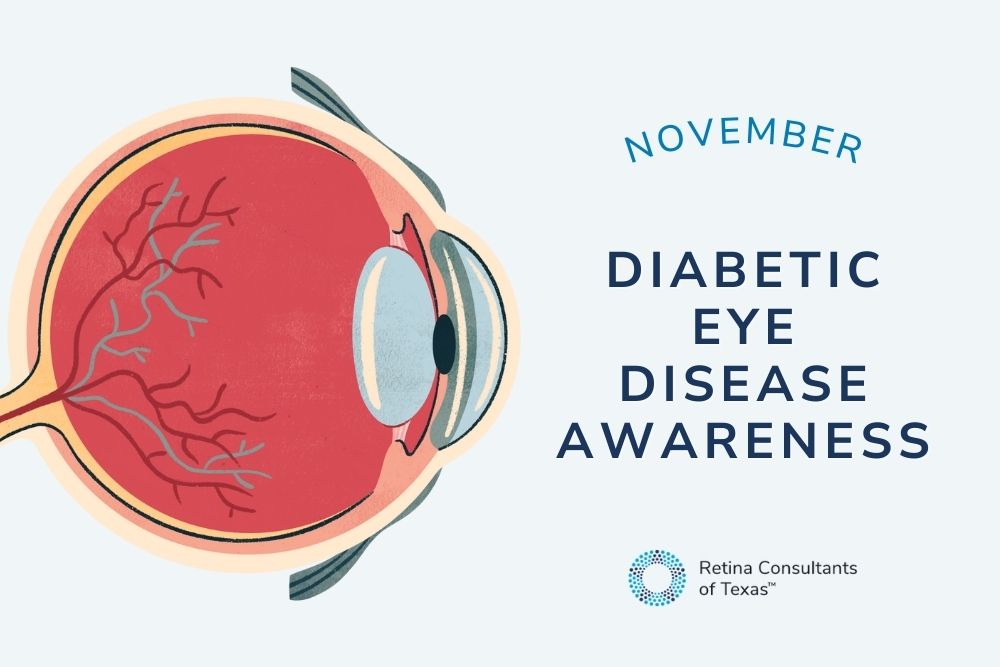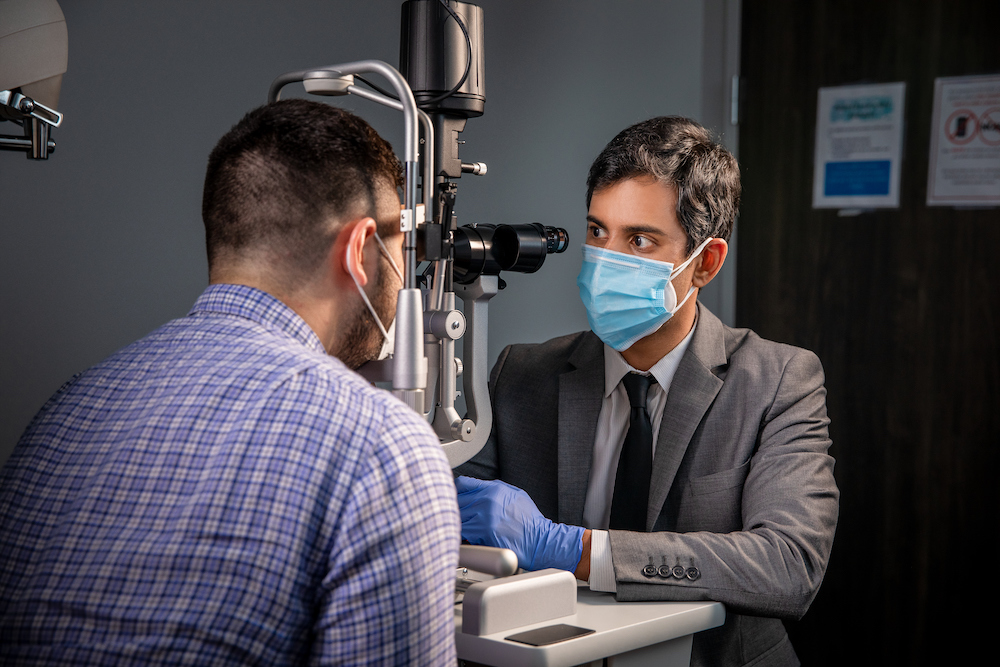Diabetic Retinopathy: Managing and Preserving Vision

Diabetes rates are on the rise, affecting 11.3% of the US population (37.3 million people), including an estimated 8.5 million people who remain unaware of their diagnosis. Among the many health complications associated with diabetes, one major concern is diabetic retinopathy, the leading cause of new blindness in those aged 16-64. To combat the threat of diabetic retinopathy and preserve vision, vigilant disease management is crucial, as well as regular diabetic eye exams. In honor of Diabetic Eye Disease Awareness Month, here’s what you should know about diabetic retinopathy.
How Diabetic Retinopathy Impacts the Eye
When a person with diabetes has elevated levels of blood sugar for prolonged periods of time, it can slowly damage the walls of the retinal blood vessels. In its earliest stages, the damage is typically minimal, causing few if any noticeable symptoms. However, in its more advanced stage, proliferative diabetic retinopathy (PDR) leads to the growth of irregular blood vessels on the retina’s surface. These new blood vessels are extremely delicate and can release blood and other fluids into the retina and vitreous. This in turn can increase the risk of severe complications, including retinal detachment.
Diabetic Vision Health: Self-Care Tips & Eye Exams
When it comes to defending your vision against diabetic retinopathy, consistency is key, as undetected issues can exacerbate quickly. At a minimum, it’s crucial that you get your blood sugar under control by sticking to the medical regimen set forth by your healthcare provider. This includes taking your medications as prescribed and checking your blood sugar regularly. If you also have high blood pressure and/or cholesterol, you’ll also need to get those conditions under control.
You may also need to implement some lifestyle changes, which can be very beneficial for diabetes in general. If you're contemplating any changes to your routine, it's imperative to consult your doctor first. They can guide you away from potential pitfalls and provide valuable insights, ensuring optimal support for both vision and diabetes control.
Diet
Patients with diabetic retinopathy are strongly encouraged to adopt a balanced diabetic diet that focuses on controlling blood sugar levels. Incorporating whole grains, lean proteins, and colorful vegetables into your diet while limiting processed sugars and refined carbs can help stabilize glucose levels. Portion control and mindful eating also contribute to overall well-being, aiding in diabetes management, promoting a healthier lifestyle, and potentially preventing or slowing the progression of diabetic retinopathy.
Physical Activity
Regular exercise is massively important for patients, as it can potentially delay diabetic retinopathy’s onset and progression. It’s a good idea to get at least 150 minutes weekly of moderate-intensity aerobic activity, such as walking.
Dilated Eye Exams
With diabetic retinopathy, visiting a retina specialist regularly for monitoring is strongly advised. For most patients, this means once a year, but some patients may need more frequent exams. However, if you’re experiencing sudden vision changes such as blurry, spotty, or hazy vision, schedule an appointment as soon as possible.
Protect Your Vision from Diabetic Retinopathy
Diabetic retinopathy poses a growing health concern with the potential for vision loss. However, adopting proactive self-care measures can help maintain your current vision by preventing it or slowing its progression. If interested in scheduling a retinal exam in the Houston or San Antonio areas, we encourage you to contact Retina Consultants of Texas.






